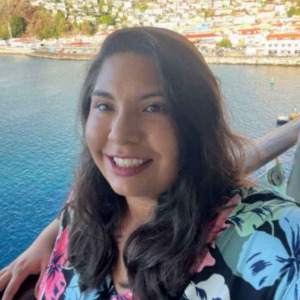Title : Reconnecting body and brain: Osteopathic manipulative medicine as a complement to neuropsychiatric care
Abstract:
Neuropsychiatric illness remains one of the leading causes of disability worldwide. Depression, anxiety, PTSD, migraine, Parkinson’s disease, stroke, and multiple sclerosis continue to place a heavy burden on patients, families, and health systems. While medications and psychotherapy form the foundation of care, many people experience incomplete recovery and ongoing challenges, including poor sleep, somatic tension, fatigue, and autonomic imbalance. These limitations highlight the need for safe and complementary approaches that can help restore function and quality of life.
Osteopathic Manipulative Medicine (OMM) is a hands-on, patient centered approach that addresses structure–function relationships and supports autonomic regulation. Despite its potential, awareness of OMM outside of osteopathic circles remains very limited, leaving many patients and clinicians unfamiliar with its applications in neurology and psychiatry. Historically, OMM was employed at the Still-Hildreth Sanatorium, where physicians used cranial, visceral, and autonomic-focused techniques to support patients with psychiatric and neurologic illness. Early reports described improvements in sleep, mood stability, and resilience. Modern evidence now echoes many of these observations with physiologic data and clinical outcomes.
For this review, PubMed and Covidence were searched through March 2025. Eligible studies included human populations with mood or neurologic disorders where OMM techniques were applied, and outcomes were reported in either physiologic measures (heart rate variability, cortisol, inflammatory markers, neuroimaging) or clinical domains. Pain-only studies were excluded.
The findings demonstrate consistent signals of benefit. In mood disorders, case series and pilot trials report reduced depression and anxiety scores, improvements in resilience, better sleep, and decreases in stress biomarkers. In PTSD, patients experienced fewer nightmares, improved autonomic balance, and greater clarity of thought. In neurological conditions, randomized and pilot studies show reduced migraine frequency and medication use, improved recovery scores following stroke, reduced rigidity and improved quality of life in Parkinson’s disease, and reduced fatigue with autonomic improvement in multiple sclerosis. While protocols varied and long term data remain limited, the consistent improvement in quality of life across diverse conditions is notable.
OMM is safe, nonpharmacologic, and effective at addressing the autonomic and somatic dimensions of neuropsychiatric illness. By restoring regulation, reducing physical strain, and easing emotional distress, OMM offers meaningful support in areas where conventional care often leaves gaps. Greater awareness, standardized protocols, and multicenter research are needed to move this therapy into broader practice.



